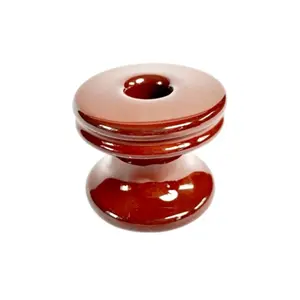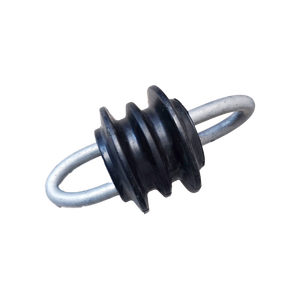Introduction to Porcelain Overhead Line Insulators
Porcelain overhead line insulators are essential components in electrical power systems, designed to support and insulate overhead power lines. Made from high-quality ceramic materials, these insulators are engineered to withstand extreme weather conditions and high voltage applications, providing reliability and safety. Their unique properties make them a preferred choice for utilities and electrical contractors globally, allowing effective electricity transmission and minimizing power losses.
Types of Porcelain Overhead Line Insulators
- Suspension Insulators:
- Used for supporting overhead lines.
- Connected in a series to form a string that can sustain large loads.
- Strain Insulators:
- Designed to manage the tension on overhead power lines.
- Ideal for areas where lines are pulled tight, controlling sag and stability.
- Shackle Insulators:
- Compact and robust, these are typically employed in lower voltage applications.
- Often used to connect a vertical pole to a horizontal power line.
- Line Post Insulators:
- Installed directly on line posts to support the overhead conductors.
- Offer excellent electrical and mechanical performance.
Applications of Porcelain Overhead Line Insulators
- High-Voltage Transmission:
- These insulators are ideal for long-distance electricity distribution, maintaining line integrity and minimizing losses.
- Substation Connections:
- Used in substations to connect transformers and switches with overhead lines.
- Renewable Energy Projects:
- Effectively utilized in wind farms and solar plants, ensuring essential connectivity to the grid.
- Urban and Rural Electrification:
- Provide reliable support and insulation for urban infrastructure while also extending services into rural areas.
Advantages of Using Porcelain Overhead Line Insulators
- Durability:
- High mechanical strength and ability to resist environmental stresses enhance longevity.
- Electrical Resistance:
- Excellent dielectric properties prevent electrical breakdown, ensuring safe operation.
- Low Maintenance:
- Porcelain requires minimal upkeep, reducing operating costs for utilities.
- Environmental Compatibility:
- These insulators are resistant to various environmental factors such as UV radiation, moisture, and pollution.
































































































































































































































































 浙公网安备 33010002000092号
浙公网安备 33010002000092号 浙B2-20120091-4
浙B2-20120091-4